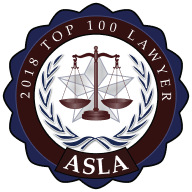In Georgia, boat accidents can lead to severe injuries, fatalities, and substantial property damage. These incidents often result in complicated legal battles where determining liability and securing fair compensation requires the involvement of witnesses. Witnesses play a crucial role in boat accident trials, helping to establish the facts of the case, clarify the sequence of events, and provide opinions on technical matters.
Understanding the role of witnesses in these trials is essential for anyone involved in a boat accident case, as their testimony can significantly influence the trial’s outcome.
Establishing the Facts
Witnesses are vital in establishing the facts surrounding a boat accident. Their accounts can help reconstruct the incident, providing a detailed narrative of what transpired before, during, and after the accident. This testimony is crucial because boat accidents often occur in environments where physical evidence can be difficult to preserve, such as on open water. Witnesses who were present at the scene can provide firsthand information about the conditions, the behavior of the individuals involved, and any potential violations of boating laws. Their observations can help clarify crucial details such as the speed of the boats, the weather conditions, and whether safety protocols were followed. Without witnesses, establishing these facts can be challenging, making it harder to determine liability and seek justice for the victims.
Clarifying the Sequence of Events
In a boat accident trial, understanding the sequence of events is critical to determining liability. Witnesses can help piece together the timeline of the accident, providing a clear picture of how the events unfolded. This information is essential for demonstrating causation and showing how the actions of one or more parties directly led to the accident. Witnesses can testify about the positions and movements of the boats, the behavior of the operators, and any interactions between the vessels before the collision. Their testimony can also shed light on whether any warning signals or attempts to avoid the accident were made.
By clarifying the sequence of events, witnesses help create a coherent narrative that supports the arguments presented by the legal teams. This narrative is crucial for convincing the jury or judge of the validity of the claims and defenses in the case.

Providing Technical Opinions
In boat accident trials, technical issues often arise that require interpretation. Witnesses with technical knowledge can provide valuable insights into these matters, helping to explain complex concepts to the court. For example, a marine engineer might testify about the mechanical condition of the boats involved, identifying any potential defects or malfunctions that could have contributed to the accident. Similarly, a navigation specialist might explain the rules of the waterway and assess whether the operators adhered to these regulations.
These technical witnesses can provide objective opinions based on their experience, helping the court understand the nuances of the case. Their testimony can clarify issues such as the adequacy of safety equipment, the impact of environmental conditions, and the proper operation of the boats. Without this technical input, the court might struggle to grasp the intricacies of the case, potentially leading to an unfair or inaccurate verdict.
Corroborating Evidence
Witnesses play a crucial role in corroborating other evidence presented in a boat accident trial. Their testimony can support or challenge the accounts provided by the parties involved, helping to establish the credibility of the evidence. For instance, if a witness’s testimony aligns with the statements given by the plaintiff, it can strengthen the plaintiff’s case by providing additional confirmation of their claims. Conversely, if a witness’s account contradicts the defendant’s version of events, it can cast doubt on the defendant’s credibility and weaken their defense. Witnesses can also corroborate physical evidence, such as photographs or video footage, by providing context and explaining what they observed. This corroboration is essential for building a robust case and ensuring that the evidence is presented accurately and convincingly.
I had the pleasure of working against Chris on a fairly complicated case. Chris was professional during the course of litigation, and undoubtedly maintained his clients’ interests as the primary focus throughout. Due to Chris’ efficiency and advocacy for his clients, we were able to resolve the case for a reasonable amount, without spending unnecessary time and expenses. I hope to have more cases with Chris in the future, and would have no hesitation recommending Chris to handle complex personal injury matters.” - Paul T.
Influencing the Jury
The testimony of witnesses can have a profound impact on the jury’s perception of the case. Jurors often rely on witness accounts to form their understanding of the events and to assess the credibility of the parties involved. Witnesses who provide clear, consistent, and believable testimony can significantly sway the jury’s opinion in favor of one side. Their ability to convey their observations and opinions convincingly can make a substantial difference in the trial’s outcome. For example, a witness who vividly describes the negligent behavior of a boat operator can help the jury visualize the scenario and empathize with the victims. On the other hand, witnesses who appear uncertain or biased may undermine the credibility of the side they are supporting. Therefore, the selection and preparation of witnesses are critical aspects of trial strategy, as their performance can influence the jury’s decision-making process.
Challenges of Using Witnesses
While witnesses are invaluable in boat accident trials, their involvement also presents challenges. One significant challenge is the potential for bias. Witnesses may have personal connections to the parties involved or may have formed subjective opinions about the accident, which can affect their testimony. Attorneys must carefully vet witnesses to ensure their impartiality and credibility. Another challenge is the potential for memory lapses or inconsistencies in testimony. Over time, witnesses’ recollections of the events may fade or become distorted, leading to discrepancies in their accounts. Attorneys must address these issues through thorough preparation and effective questioning to ensure that the witness testimony remains reliable and accurate. Additionally, the opposing side may attempt to discredit witnesses through cross-examination, highlighting any inconsistencies or biases to undermine their credibility. Attorneys must anticipate and counter these challenges to protect the integrity of the witness testimony and maintain a strong case.
The Role of Witnesses in Settlement Negotiations
Witnesses can also play a significant role in settlement negotiations. The strength of the witness testimony can influence the willingness of the parties to settle the case out of court. If witnesses provide compelling and credible accounts that strongly support one side, it may encourage the other side to seek a settlement to avoid the risk of an unfavorable trial outcome.
Conversely, if the witness testimony is weak or inconsistent, it may embolden the opposing side to pursue litigation, believing they have a better chance of success in court. Therefore, the preparation and presentation of witness testimony are crucial not only for the trial itself but also for the negotiation process. Effective use of witnesses can enhance the negotiating position of the parties, potentially leading to a more favorable settlement.
Legal Assistance and Witness Preparation
Given the critical role of witnesses in boat accident trials, it is essential for those involved to seek legal assistance from experienced attorneys. Attorneys can provide invaluable support in identifying, vetting, and preparing witnesses to ensure their testimony is compelling and credible. They can guide witnesses through the legal process, helping them understand what to expect and how to present their observations effectively. Attorneys can also develop strategies for countering potential challenges to witness credibility, ensuring that their testimony remains strong under cross-examination. By leveraging their experience, attorneys can maximize the impact of witness testimony, strengthening the overall case and increasing the likelihood of a favorable outcome.
Contact Us Today, and Let Us Fight for You
Navigating the complexities of a boat accident trial requires legal representation. The Gunnels Law Firm LLC has extensive experience handling boat accident cases in Georgia and is dedicated to providing comprehensive legal support to its clients. Our team understands the importance of witnesses in these cases and works diligently to ensure their testimony is accurate and persuasive. We are committed to guiding our clients through every step of the legal process, from gathering evidence to preparing witnesses and presenting a strong case in court.
If you or a loved one has been involved in a boat accident, contact The Gunnels Law Firm LLC today for a consultation. Let us help you secure the justice and compensation you deserve.







